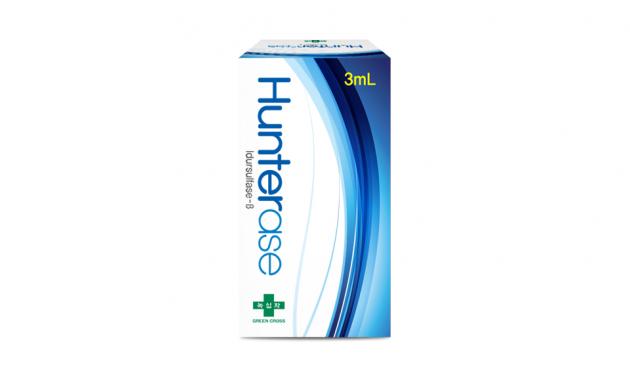GC Pharma said Tuesday that its partner, Clinigen K.K., has applied for the item approval of Hunterase Intracerebroventricular (ICV), a treatment for the Hunter syndrome, to Japan’s Medical and Medical Device Organization.
Before the application, the product won the designation as rare disease treatment, raising the possibility of its commercialization, the company said.
Hunterase ICV is a treatment directly injected into the ventricle by inserting a device in the head. In the case of the existing intravenous formulations, the drugs could not penetrate the blood brain barrier, facing limitations to improving the central nerve damage such as intellectual development disorder.

The ventricular administration of Hunterase ICV is significant in that it can secure treatment options for the unmet need of Hunter syndrome. Seven out of every 10
The hunter syndrome is a rare congenital disease that causes skeletal abnormalities and decreased intelligence due to the enzyme, Iduronate-2-sulfatase, deficiency. About one in 100,000 to 150,000 male children develop the syndrome. Hunter syndrome patients show severe damage to central nerve damage difficult to be treated.
The drug can be a significant change in the treatment of severe hunter syndrome patients who are known to gradually lose their cognitive ability and have a very short life expectancy compared to that of the mild patients.
Hunterase ICV significantly reduced heparan sulfate, a core substance that causes central nerve damage, in the clinical trials led by Professor Okuyama Torayuki of the National Center for Child Health and Development in Tokyo, according to GC.
The “developmental age,” which is a primary clinical evaluation index and used to assess the degree of intellectual and physical developmental disorder in patients with Hunter syndrome, was also improved or stabilized, it said.
The developers expect positive effects from the designation of Hunterase ICV as a rare disease treatment on Feb. 17 by Japan’s Ministry of Health, Labor and Welfare. In Japan, unlike the U.S. and the European Union, the designation requirements for rare disease drugs include the possibility of development separately from scarcity and medical necessity.
“We expect Hunterase ICV will lead to a dramatic improvement in patients’ quality of life through a partnership with Clinigen K.K.,” GC Pharma President Huh Eun-chul said. “GC Pharma will continue to make innovations to address unmet needs for the treatment of rare diseases.”
Benjamin Miny, senior vice president of commercial medicines at Clinigen K.K. Group, also said, “The application will be an important growth engine in Japan,” adding that if the drug is released, it will be able to address the unmet needs of the Hunter syndrome patients.

